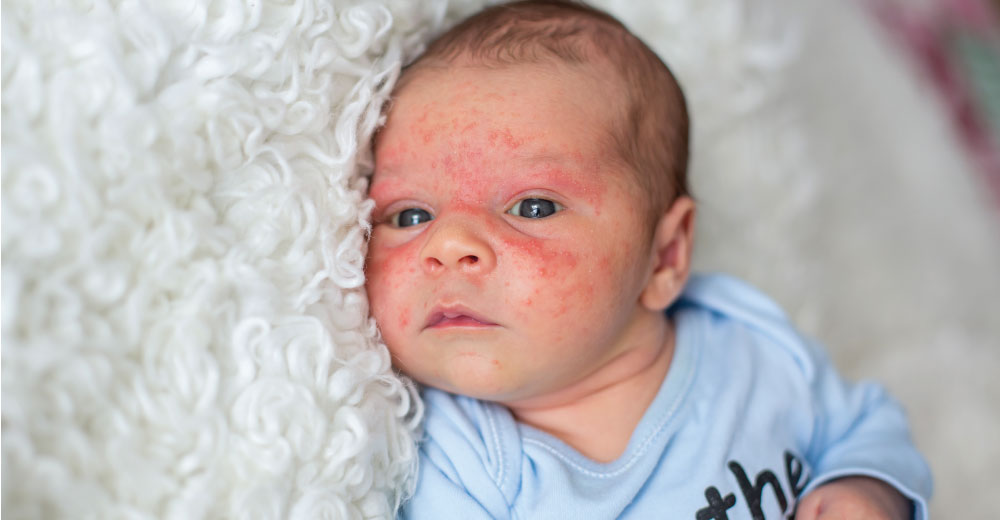How can I tell if my child’s rash is actually eczema?
Eczema is a chronic skin condition characterised by dry, itchy and red skin. Typically, eczema is found in the creases of skin in older children and on babies’ faces. Sometimes, it can be difficult to judge if a suspicious patch is a rash or eczema, as they have overlapping symptoms. If you suspect your child has eczema, it would be best to consult a paediatrician for a proper diagnosis and treatment.
If neither parents have eczema, how and why does a child still get it?
Eczema is a multifactorial condition, influenced by a combination of genetic and environmental factors. As a general guide, if neither parent has eczema, asthma or hay fever, there is one in 10 chance (10%) that their child could still get eczema. If one parent has eczema, asthma or hay fever, the child has a one in four chance (25%) of getting eczema. If both parents have eczema, asthma or hay fever, their child has a one in two chance (50%) of getting it.
If one or both parents have eczema, is there anything that can be done to prevent their child from getting it?
There is no cure for eczema, but there are a few things you can do to reduce your child’s risk of getting eczema. Breastfeeding exclusively for the first six months and preferably continuing to breastfeed beyond one year old can reduce the risk of your child getting eczema. Babies should be protected against potential allergens like pet fur, mites, cigarette smokes etc.
What causes eczema to flare up and what can be done to prevent it from happening?
Eczema alternates between flare up and remission phases and can vary in severity. When your child’s eczema seems under control but suddenly worsens, this is known as flare up. Management of eczema focuses on prevention of flare up and maintaining remission. Identifying and avoiding potential triggers is the backbone of the treatment. Keep track of things used like soaps, detergents, softeners, floor cleaners etc, so that it is easy to trace and find the cause of flare up. It is not advisable to keep pets at home, or use carpets for that matter. Also, keep them away from cigarette smoke.
What is the best way for parents to manage their child’s eczema?
Always consult a doctor if you think your child has eczema as it can range in severity. Apart from that, there are few things that parents can do for their child with eczema:
- Keep the skin moisturised: Always use gentle soaps, followed by a skin emollient everyday
- Avoid long baths: Soaking in the bath water for a prolonged period of time may strip the skin from its natural oils, leaving it dry and vulnerable
- Keep bedroom’s air as fresh as possible, with windows opened whenever possible – (make sure it’s niether too hot nor too cold)
- Dress your child in soft and light materials, such as cotton to avoid skin friction
- Keep their nails short and trimmed to avoid skin injury during scratching
- Use a perfume-free detergent
- Remove carpets and stuffed toys from your child’s bedroom
What are the usual treatments that doctors/skin specialists carry out for children with eczema? Follow-up question: How effective are these treatments?
During a flare up, specialists usually will prescribe a topical corticosteroid cream to bring down the inflammation and prevent complications like infection and also scarring. Once 80-90% of remission has been achieved (meaning no more redness or scaliness), it is recommended to switch to a controller cream to control and prevent another flare up.
What would be your words of encouragement for parents who are dealing with their child’s eczema?
Don’t give up! Don’t stress yourself too much either; managing your child’s eczema is challenging but it is achievable.

Consultant Paediatrician,
Sri Kota Specialist Medical Centre.


